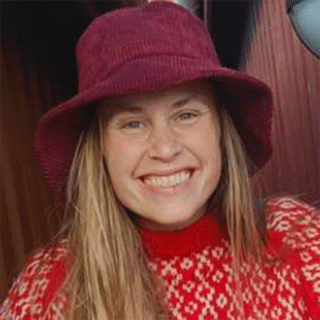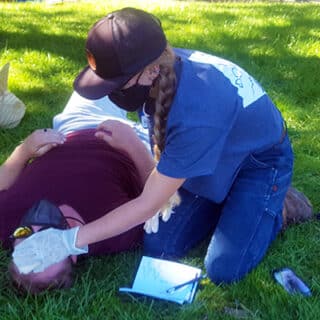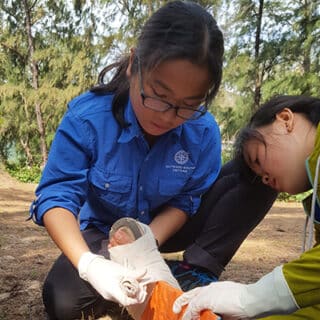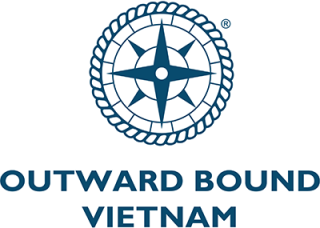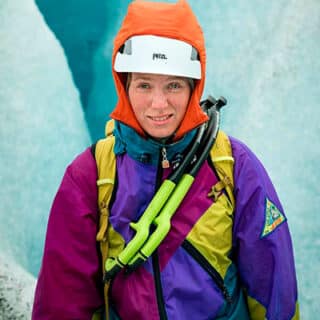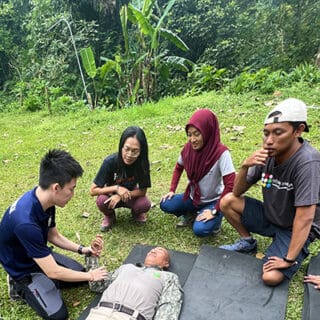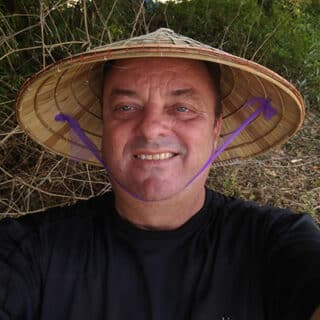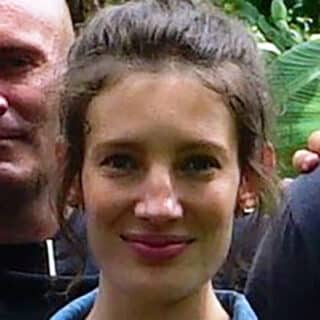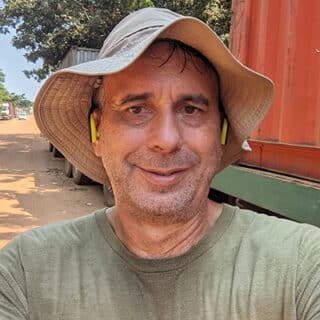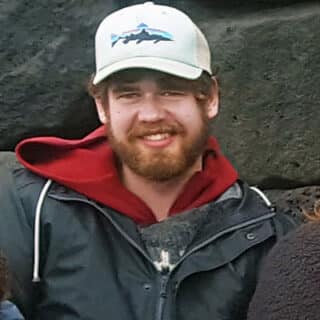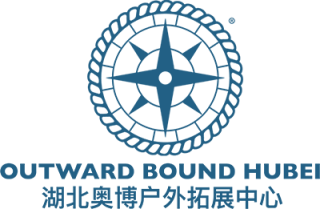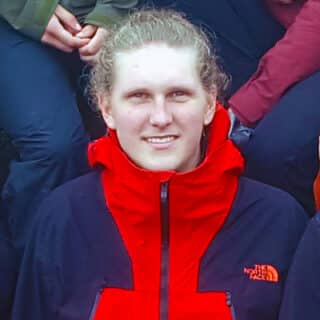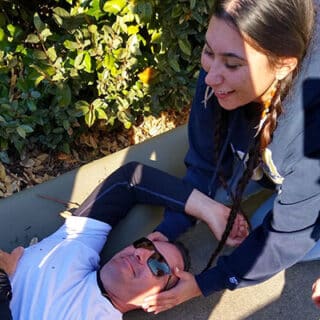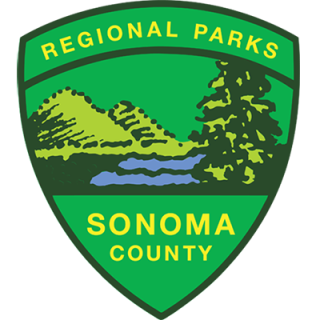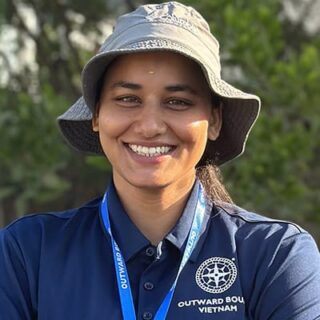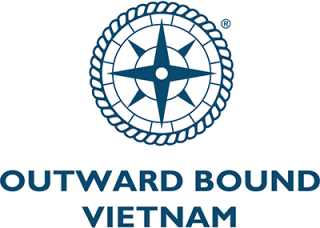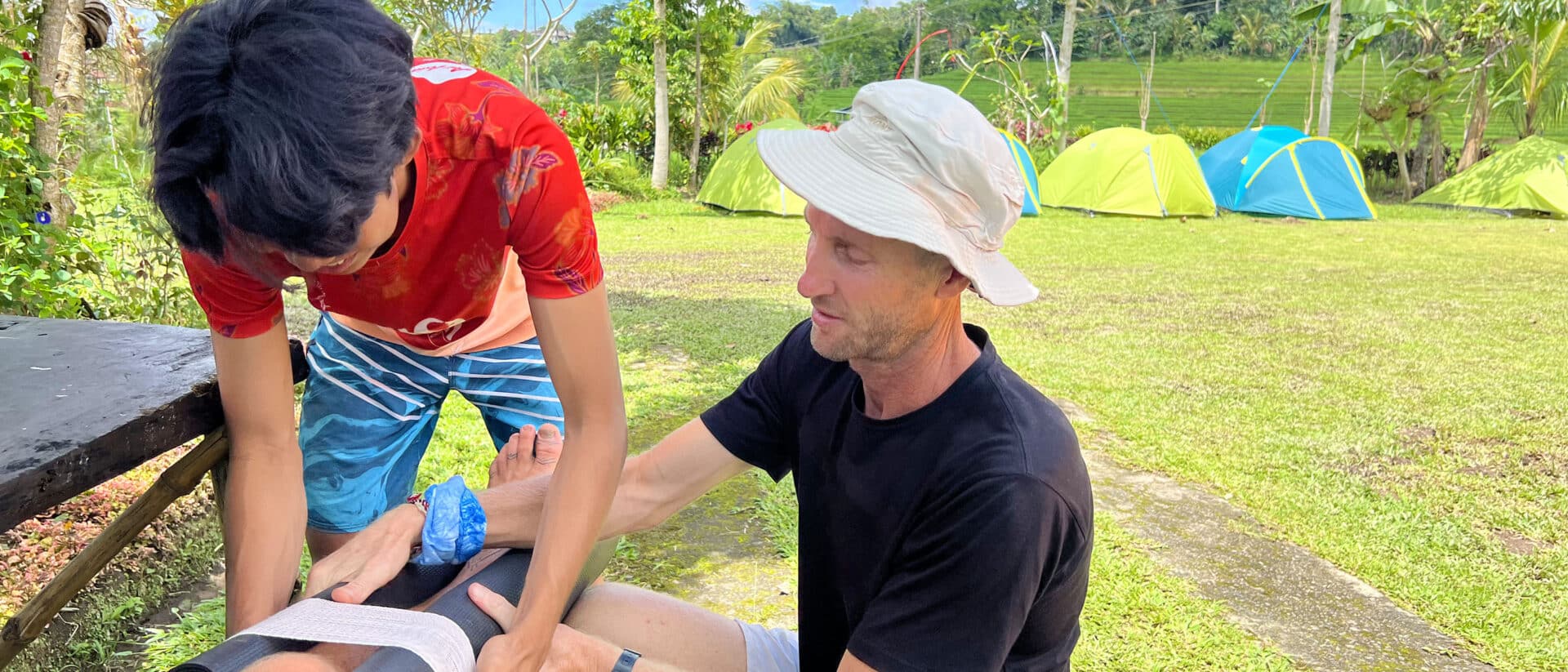
Wilderness Advanced Life Support
Wilderness and remote medicine skills for advanced medical care practitioners
Four-day intensive for physicians and other advanced providers seeking skills in overseeing response to complex medical emergencies in low-resource contexts.
Course covers assessment and medical treatment, incident management, and medical adaptation/improvisation in extreme environments.
Course Overview
Wilderness Advanced Life Support
Course # 250909
Dates
October 31 –
November 6
Course Length
4 days
Location
Yellow Springs, Ohio USA
Registration deadline
October 31
Cost
USD 101
Language
English
Certification
Wilderness Advanced Life Support
Course Description
The Wilderness Advanced Life Support course curriculum is written by a team of remote medical rescue researchers and professionals. Ongoing evidence-based research and review is used to develop a unique and innovative approach to patient care in backcountry and austere settings. The curriculum is comprehensive, complete, and kept current on an annual basis.
Course learning outcomes include the capacity to:
- Apply concepts of pathophysiology to long-term care for medical, trauma and environmental conditions.
- Connect anticipated problems for injuries and common medical issues in a remote setting to relevant treatment and extended care.
- Create an appropriate inventory of medical and first aid supplies, including prescription and OTC medications, and considerations for their use in remote patient care contexts.
- Use adaptation and improvisation skills to transfer existing skills and protocols to extreme environments and low-resource contexts.
- Improvise patient stabilization through, for instance, pelvic binders improvised from nearby materials, femur splints, and lifting, moving and extrication without hospital/pre-hospital tools.
- Develop a treatment and evacuation plan for a wide variety of patient profiles, using considered risk-benefit analysis, in remote, austere, offshore or disaster settings.
- Work collaboratively with team members in complex, time-critical emergencies with limited access to equipment and trained personnel
Certifications
Upon successful completion, learners will receive a Wilderness Advanced Life Support certification card.
This constitutes a wilderness endorsement to the practitioner’s current level of licensure.
Certifications are valid for three years.
Current regional or national registration as a medical provider is required for validity of WALS certification.
Evaluation
Successful completion with certification is based on 100 percent attendance, satisfactory performance on homework assignments and written quizzes, demonstrated proficiency with practical skills and a successful grade on a final written exam. Viristar is committed to making reasonable accommodation to any learner with special needs.
Recertification
To continue certification, a graduate of a WALS training should re-enroll in the course.
Prerequisites
Participants must have current ALS certification, such as Physician, Advanced Practice Provider (PA, NP), Registered Nurse, or Paramedic or other ALS-trained field provider.
Other prospective participants (e.g. advanced EMTs) may be considered for admission on a case-by-case basis.
Continuing Education Hours
- Advanced EMT or Paramedic: 36
- Approved by Commission on Accreditation for Pre-Hospital Continuing Education (CAPCE)
- Through the Wilderness Medical Society, physicians, physician assistants/associates and other ALS-certified professionals may receive up to 36 hours of AMA PRA Category I Credit.
- WALS courses are normally approved for 36 contact hours by the California Board of Registered Nursing (Provider #CEP17692).
- This activity has been planned and implemented in accordance with the Essential Areas and policies of the Accreditation Council for Continuing Medical Education.
- Physicians can also receive up to 36 hours of Mainpro-C credit through the College of Family Physicians of Canada.
Materials Provided
All teaching materials will be at no additional cost. Participants will receive the following books on this course:
- SOAP Notebook
- Wilderness and Rescue Medicine: A Practical Guide for the Basic and Advanced Practitioner
- The Field Guide of Wilderness and Rescue Medicine
- Wilderness Medicine Workbook
- Wilderness EMS/Wilderness ALS Class Notes
Equipment
We ask our sponsors and course hosts to provide basic outdoor equipment and any specific gear relevant to their personnel when in remote and austere environments. Viristar will supply a specific equipment list to cover simulation and classroom needs.
Viristar will normally provide equipment such as vascular access tools, airway adjuncts, chest trauma management tools, OPA/NPAs, pressure infuser, epinephrine sticks lab supplies, and wound cleaning and dressing supplies.
Customization
As part of Viristar’s commitment to your medical rescue training, our instructors and management will inquire about your group’s needs and teach according to your group’s backgrounds, environments, and experience. Simulations and hands-on activities will be realistic and relevant. Relevant adult education is incorporated directly into our curriculum to maximize learning of medical theory and development of practical skills.
Syllabus
DOWNLOAD FULL SYLLABUSTopics
Day 1
8.5 hours
Logistics and introduction
General concepts in wilderness medicine
Patient assessment with drills
Critical system summary
Anaphylaxis
Spine (lecture, demonstration and practice of examination; assessment drills)
Patient movement/improvised patient carries
Patient packaging
Wrap-up
Day 2
9.5 hours
Homework review
Pain management
Musculoskeletal
Limb splinting
Dislocations (lecture, reduction demo with videos and practice)
Wounds/Burns
Thermoregulation
Small group BLS simulations and debrief
Wrap-up
Day 3
10.5 hours
Homework review
Altitude
Cold injuries
Lightning
Medical aspects of avalanche
ALS tools lab & appropriate technology (lecture and lab)
SAR/Organization/Roles
Night simulation
Day 4
7.5 hours
Homework review
Night sim debrief
Drowning/SCUBA (barotrauma)
Toxins/Zoonotic Disease Vectors
Expedition practitioner/backcountry medicine (lecture, discussion and drill)
First aid kits and prescription medications
Medical-legal considerations
Review & wrap-up
Instructor

Garth Tino
Garth Tino Ed.S. (he/him) is a consultant with Viristar. He has been an instructor and risk manager at Utah Valley University in the Outdoor Recreation Management degree program since 2002. Garth has an undergraduate degree in outdoor and adventure education from the University of New Hampshire, and a Master’s degree in Outdoor and Adventure Education from Prescott College, with an Ed.S. in Educational Leadership from Walden University.
Before teaching, Garth worked in wilderness therapy, in residential treatment as a recreation therapist, and with Voyageur Outward Bound and the National Ability Center. He worked at Snowbird and other resorts teaching skiing. Garth is a Leave no Trace Trainer, PRO1 with the American Avalanche Association, an AIARE Instructor, and a Wilderness First Responder. He teaches avalanche awareness courses and ski guides in the Wasatch Range in the western USA. Garth has been working in outdoor recreation and education since 1990.
Currently residing in Utah USA, Garth enjoys climbing, mountaineering, backcountry skiing, mountain biking, backpacking, ice climbing, and trail running.
Course Description
The Wilderness Advanced Life Support course curriculum is written by a team of remote medical rescue researchers and professionals. Ongoing evidence-based research and review is used to develop a unique and innovative approach to patient care in backcountry and austere settings. The curriculum is comprehensive, complete, and kept current on an annual basis.
Course learning outcomes include the capacity to:
- Apply concepts of pathophysiology to long-term care for medical, trauma and environmental conditions.
- Connect anticipated problems for injuries and common medical issues in a remote setting to relevant treatment and extended care.
- Create an appropriate inventory of medical and first aid supplies, including prescription and OTC medications, and considerations for their use in remote patient care contexts.
- Use adaptation and improvisation skills to transfer existing skills and protocols to extreme environments and low-resource contexts.
- Improvise patient stabilization through, for instance, pelvic binders improvised from nearby materials, femur splints, and lifting, moving and extrication without hospital/pre-hospital tools.
- Develop a treatment and evacuation plan for a wide variety of patient profiles, using considered risk-benefit analysis, in remote, austere, offshore or disaster settings.
- Work collaboratively with team members in complex, time-critical emergencies with limited access to equipment and trained personnel
Certifications
Upon successful completion, learners will receive a Wilderness Advanced Life Support certification card.
This constitutes a wilderness endorsement to the practitioner’s current level of licensure.
Certifications are valid for three years.
Current regional or national registration as a medical provider is required for validity of WALS certification.
Evaluation
Successful completion with certification is based on 100 percent attendance, satisfactory performance on homework assignments and written quizzes, demonstrated proficiency with practical skills and a successful grade on a final written exam. Viristar is committed to making reasonable accommodation to any learner with special needs.
Recertification
To continue certification, a graduate of a WALS training should re-enroll in the course.
Prerequisites
Participants must have current ALS certification, such as Physician, Advanced Practice Provider (PA, NP), Registered Nurse, or Paramedic or other ALS-trained field provider.
Other prospective participants (e.g. advanced EMTs) may be considered for admission on a case-by-case basis.
Continuing Education Hours
- Advanced EMT or Paramedic: 36
- Approved by Commission on Accreditation for Pre-Hospital Continuing Education (CAPCE)
- Through the Wilderness Medical Society, physicians, physician assistants/associates and other ALS-certified professionals may receive up to 36 hours of AMA PRA Category I Credit.
- WALS courses are normally approved for 36 contact hours by the California Board of Registered Nursing (Provider #CEP17692).
- This activity has been planned and implemented in accordance with the Essential Areas and policies of the Accreditation Council for Continuing Medical Education.
- Physicians can also receive up to 36 hours of Mainpro-C credit through the College of Family Physicians of Canada.
Materials Provided
All teaching materials will be at no additional cost. Participants will receive the following books on this course:
- SOAP Notebook
- Wilderness and Rescue Medicine: A Practical Guide for the Basic and Advanced Practitioner
- The Field Guide of Wilderness and Rescue Medicine
- Wilderness Medicine Workbook
- Wilderness EMS/Wilderness ALS Class Notes
Equipment
We ask our sponsors and course hosts to provide basic outdoor equipment and any specific gear relevant to their personnel when in remote and austere environments. Viristar will supply a specific equipment list to cover simulation and classroom needs.
Viristar will normally provide equipment such as vascular access tools, airway adjuncts, chest trauma management tools, OPA/NPAs, pressure infuser, epinephrine sticks lab supplies, and wound cleaning and dressing supplies.
Customization
As part of Viristar’s commitment to your medical rescue training, our instructors and management will inquire about your group’s needs and teach according to your group’s backgrounds, environments, and experience. Simulations and hands-on activities will be realistic and relevant. Relevant adult education is incorporated directly into our curriculum to maximize learning of medical theory and development of practical skills.
Syllabus
DOWNLOAD FULL SYLLABUSTopics
Day 1
8.5 hours
Logistics and introduction
General concepts in wilderness medicine
Patient assessment with drills
Critical system summary
Anaphylaxis
Spine (lecture, demonstration and practice of examination; assessment drills)
Patient movement/improvised patient carries
Patient packaging
Wrap-up
Day 2
9.5 hours
Homework review
Pain management
Musculoskeletal
Limb splinting
Dislocations (lecture, reduction demo with videos and practice)
Wounds/Burns
Thermoregulation
Small group BLS simulations and debrief
Wrap-up
Day 3
10.5 hours
Homework review
Altitude
Cold injuries
Lightning
Medical aspects of avalanche
ALS tools lab & appropriate technology (lecture and lab)
SAR/Organization/Roles
Night simulation
Day 4
7.5 hours
Homework review
Night sim debrief
Drowning/SCUBA (barotrauma)
Toxins/Zoonotic Disease Vectors
Expedition practitioner/backcountry medicine (lecture, discussion and drill)
First aid kits and prescription medications
Medical-legal considerations
Review & wrap-up
Instructor

Garth Tino
Garth Tino Ed.S. (he/him) is a consultant with Viristar. He has been an instructor and risk manager at Utah Valley University in the Outdoor Recreation Management degree program since 2002. Garth has an undergraduate degree in outdoor and adventure education from the University of New Hampshire, and a Master’s degree in Outdoor and Adventure Education from Prescott College, with an Ed.S. in Educational Leadership from Walden University.
Before teaching, Garth worked in wilderness therapy, in residential treatment as a recreation therapist, and with Voyageur Outward Bound and the National Ability Center. He worked at Snowbird and other resorts teaching skiing. Garth is a Leave no Trace Trainer, PRO1 with the American Avalanche Association, an AIARE Instructor, and a Wilderness First Responder. He teaches avalanche awareness courses and ski guides in the Wasatch Range in the western USA. Garth has been working in outdoor recreation and education since 1990.
Currently residing in Utah USA, Garth enjoys climbing, mountaineering, backcountry skiing, mountain biking, backpacking, ice climbing, and trail running.
